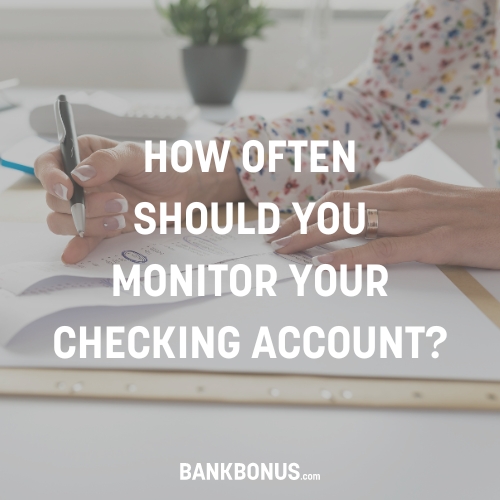One of the most common stipulations banks have to earn a sign-up bonus is to set up direct deposit. They do this because consumers are more likely to keep the account open if they go through the hassle of setting up direct deposit. After all, it’s commonly perceived as being a burdensome task.
Here’s the good news. You can keep your bank accounts open and split up your paychecks with direct deposits going to different banks. This allows you to take advantage of the many bank bonus promotions we showcase.
Even if you’re self-employed, like myself, you can set up your paycheck to be deposited in several accounts. As long as you meet the bank’s minimum deposit requirement, you can earn hefty bonuses, making passive income just by taking advantage of bank sign-up bonuses.
But the bigger question is, what counts as a direct deposit? Keep reading to find out the answer!
What Is a Direct Deposit?
Direct deposits are electronic funds transfer (EFT) payments that go directly into your bank account. Physical cash and check deposits are generally not considered direct deposits since they are not electronic.
To receive a direct deposit, you must supply your account and routing numbers. This rule applies whether your account is with a bank or a credit union, including a federal credit union.
Usually, direct deposits go to a checking account from which you can pay bills, make transfers, and take care of your personal finance matters; however, you can set them up for savings accounts, too.
While the term direct deposit is very generic, it usually refers to payments that pass through the ACH (Automated Clearing House) network. Such deposits include what are known as ACH transfers – transfers that pass through the ACH network and often include paychecks, government benefits, and tax refunds.
Direct Deposits as a Bonus Requirement
Direct deposits are also often a requirement for many banks and credit union sign-up bonuses. While the exact rules may vary from one financial institution to another, the banks generally look for you to deposit your pay or benefits there.
Since these payments are regular, the bank can ensure they’ll have a steady stream of money entering and leaving the account.
However, it’s important to note that not all bonus terms and conditions are the same. Before accepting a bonus, read the fine print. If you’re still in doubt, contact the bank and ask them. That way, you’ll have confirmation in writing.
What Counts as a Direct Deposit at Top Banks
At BankBonus.com, we make it easy to determine the requirements to earn a bank bonus. We spell out the terms for you, provide links to the bank, and ensure you have all the necessary information to get your bank bonus from banks requiring a direct deposit.
Here are some of the top bank accounts that offer consistent bonuses and their direct deposit requirements.
1. Bank of America
- Requires Direct Deposit for Advantage Banking Sign-up Bonus
Bank of America is a full-service bank with some 3,900+ locations. As one of the Big Four banks in the US, Bank of America still attracts many customers with advantageous sign-up bonuses offered occasionally.
Bank of America considers regular monthly income as a qualifying direct deposit. More specifically, it needs to be one of the following:
- Salary
- Pension
- Social Security benefits
The bank excludes everything else, including teller deposits, wire transfers, debit card transfers, and ATM transfers and deposits.
See all current Bank of America promotions
2. Chase
- Does not require direct deposit
Chase Bank, a subsidiary of JP Morgan Chase, is the largest bank in America. It often makes the news thanks to its CEO Jamie Dimon. Their consumer banking department has over 4,700 branches peppered across the US and often appears in lists of top banks.
Chase Bank considers the following as direct deposits:
- Paychecks
- Pensions
- Government benefits
See all current Chase Bank promotions
3. PNC Bank
- Requires direct deposit for Virtual Wallet Pro bonus
PNC Bank is a subsidiary of PNC Financial Services Group. It operates in 29 states within the US and has 2,400 branches.
When it comes to what qualifies as a direct deposit for their sign-up bonuses, PNC Bank lists the following:
- Paycheck
- Pension
- Social Security
- Other regular monthly payments
One other condition explicitly noted is that the money must be deposited into the account electronically and must come from an employer or an outside agency.
See all current PNC Bank promotions
4. US Bank
- Does not require direct deposit
US Bank is a subsidiary of US Bancorp and is the 5th largest banking corporation in the US. It mainly services Western and Midwestern states, with over 2,000 branches and thousands of ATMs covering 26 states.
When it comes to qualifying direct deposits, the bank lists the following in its terms and conditions:
- Paycheck
- Government benefits
All other forms of electronic deposits, including P2P payments, are explicitly excluded from eligibility. P2P payments generally include payments from PayPal and cash app Venmo and Amazon payments (Amazon Pay).
See all current US Bank promotions
Frequently Asked Questions
What is considered a qualifying direct deposit?
Many banks require qualifying direct deposits for sign-up bonuses. Each financial institution has its own rules of what it considers a qualifying direct deposit. Generally speaking, the bank or credit union is looking for a monthly income source such as a paycheck, benefits, or pension.
Is Zelle considered a direct deposit?
In most cases, Zelle is not considered a direct deposit. Zelle is mainly used to transfer money between friends and family. Banks and credit unions want a monthly income source such as a paycheck, benefits, or pension. It is worth noting – some bonuses only require a one-time transfer from an account not held by the same bank.
What is an example of direct deposit?
Here’s a quick example of a direct deposit. Your employer pays you bi-weekly, and you can set up direct deposit or receive a paper check. You opt for direct deposit, so every other Friday, you wake up to your paycheck deposited in your bank account. You don’t have to go to the bank to deposit it; the funds are there on each payday.





No comments yet. Add your own